How to survive the coming deflation crisis: invest in China
Think deflation is worrying now? You ain’t seen nothing yet, says Jonathan Compton. The best place to hide is China.
Get the latest financial news, insights and expert analysis from our award-winning MoneyWeek team, to help you understand what really matters when it comes to your finances.
You are now subscribed
Your newsletter sign-up was successful
Want to add more newsletters?

Twice daily
MoneyWeek
Get the latest financial news, insights and expert analysis from our award-winning MoneyWeek team, to help you understand what really matters when it comes to your finances.

Four times a week
Look After My Bills
Sign up to our free money-saving newsletter, filled with the latest news and expert advice to help you find the best tips and deals for managing your bills. Start saving today!
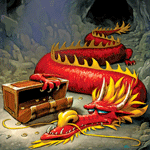
Think deflation is worrying now? You ain't seen nothing yet, says Jonathan Compton. The best place to hide? China
Deflation is a financial ninja, a silent assassin whose lifeless victims are discovered long after his disappearance. He murders the finances of governments, companies and individuals. Most important of all, he hurts confidence. Since 2013, deflation ninjas have spread globally. And now they're about to take the destruction to a new level all because of China.
In the dry economic terminology, "deflation is a decrease in the general price level of goods and services". This sounds anodyne. What is wrong with goods and services becoming cheaper? Yet its impact is dire. The first victim is government finances.
MoneyWeek
Subscribe to MoneyWeek today and get your first six magazine issues absolutely FREE

Sign up to Money Morning
Don't miss the latest investment and personal finances news, market analysis, plus money-saving tips with our free twice-daily newsletter
Don't miss the latest investment and personal finances news, market analysis, plus money-saving tips with our free twice-daily newsletter
When nominal GDP (ie, real growth plus inflation) is in the high single digits, there is a ratcheting-up effect on government revenue, creating a wealth effect the tax take goes up, enabling higher spending, or tax cuts, or both. The reverse applies under deflation. That means tax increases, spending cuts, or often both.
For business, deflation is a severe problem. Falling prices squeeze profits,so costs must be cut by laying offworkers and putting off new investment. These actions feed through the corporate food chain. Individuals see their savings income disappear and their wages remain static (assuming they still have jobs). As a result, they cut back on spending, especially on major items such as cars, in the correct assumption that they will be cheaper in the future.
So people borrow and consume less. Yet debt itself becomes a problem across the whole economy. Governments initially welcome the lower borrowing costs they enjoy due to the reduced interest rates they have to pay on their bonds.
However, the underlying assumption made by all governments and businesses when they borrow a few billion here or there, is that when repayment is due the "real" cost will be significantly lower because inflation has eaten away its value. But under deflation, the cost of repayment rises every day in real terms.
Central banks whose self-belief is in inverse proportion to their ability to understand the world outside their front doors have been woeful at spotting the deflation ninjas in the shadows. Having learnt their trade at a time when the bogeyman was inflation, they continue to seek out long-dead inflation demons.
Hence the prime role of the governor of the Bank of England and his enormous staff remains to write a letter every month to the chancellor to explain how well he is controlling inflation. This is beyond parody.
Since the turn of the century, the Bank's forecasts have been worse than the random tossing of a coin. Proof that the Bank continues to fight the last war is clear from its governor, Mark Carney, describing the collapse in oil prices as "unambiguously positive" for the economy.
He would have been wiser perhaps to have focused on the collapse in capital expenditure by the important oil industry, the rapid layoff of workers and wage cuts, plus the significant ricochet effect on many other businesses, such as engineering not to mention the effect on government revenue.
Reading the signs
Since 2012 there have been several signs that deflation globally is getting worse: lower agricultural prices, the collapse in the prices of iron ore, copper and cement, plus flat or falling wages across the entire northern hemisphere.
In the extraordinary terminology of investment analysts, capital expenditure has tended to "surprise on the downside" ie, firms have not been investing in new factories or equipment, but prefer to play the stockmarket by buying back their own shares. Each deflationary sign is dismissed as temporary, despite evidence of it becoming widespread.
In December 2012, Shinzo Abe became Japan's new prime minister. With a mandate to restore the economy, he immediately announced plans to make the Japanese yen weaker. It was trading at 84 to the dollar at the time.
A weak currency was then formalised in Abe's "Three Arrows" strategy, created to end Japan's 20-year economic torpor. As far as the currency went, the plan worked the yen is now trading at 122, although the economy remains on life support.
Unusually, this currency manipulation was met with a shrug by most countries, when typically it is considered an international crime by politicians and central banks alike. America has always been strident in its accusations of currency manipulation, even as it manoeuvred the dollar by 2010 to a 30-year low.
Yet in this case it tacitly encouraged Japan's action. The impact of the world's third-largest economy collapsing its exchange rate was almost immediately to lower both prices and demand globally.
More recently other areas have followed: Mario Draghi in the eurozone, Sweden, Australia and many emerging nations have all been driving their currencies lower to stimulate exports, increase capital inflow and improve their balance of payments. These so-called "currency wars" are entirely normal every government will try to gain an edge internationally yet the cumulative effect is to create a deflationary spiral.
Will China join the currency wars?
One golden financial rule is: never play poker with a central banker; he will have marked the cards and put the aces up his sleeve. So when last week both China's foreign-exchange regulator and other officials announced that the exchange rate of the yuan would remain stable in 2015, you had to wonder, where's the catch? Because devaluation is undoubtedly in China's interest and the least painful political solution to its many structural problems.
Although I have total faith that most Chinese government statistics are a fiction being a combination of propaganda, aspiration and targets even so it is clear that the currency is overvalued. Between 2005 when it abandoned the dollar peg and its peak in January 2014, the yuan rose by 37% against the US dollar and more still against the yen and the euro.
Since then it has slipped a few percent against a recently strong dollar, but has continued to rise against other currencies. China's once feared export machine is buckling under cheaper competition, not just from Asia, but even from expensive Germany (China is Germany's largest export market).
China's historic competitiveness was so great that its foreign-exchange reserves soared. Yet while at $4trn they still dwarf those of America and the entire eurozone, growth of $250bn in 2013 was followed by a fall in 2014 of $130bn in December alone.
When China was booming it had to recycle its surpluses to avoid overheating the domestic economy, becoming the key foreign player in international government-bond markets, especially US Treasuries. This was almost a honeytrap, as China helped to fund the US government and its consumers into overspending.
Yet in the last six months of 2014 China became a net seller of Treasuries for the first time in a decade, dumping about $75bn worth proofthat the pressures for the yuan to rise have vanished.
Money floods out of China
However, this is only part of the story. There is continuous but unmeasurable capital seepage. At the end of last year, President Xi Jinping visited the former Portuguese enclave of Macau to celebrate its return to China 15 years earlier.
In the last decade it has morphed from a backwater with one grubby casino into the world's largest gambling centre, with revenues five times those of Las Vegas. The real purpose of the visit, however, was to re-emphasise the crackdown on corruption money-laundering by the casinos for mainland Chinese.
Estimates suggest that, at its peak, $2bn-$4bn a month was illegally leaving China a significant chunk of change. Throughout China the wealthy have reacted to the intense crackdown on corruption (part real reform, part designed to crush opposition) by nervously syphoning as much of their wealth as possible overseas using quasi-legal local borrowing to buy untraceable dollars deliverable overseas.
Then there is tourism. In 2009 the books were in balance. Since then, Chinese tourists have been heading for destinations in Europe and Asia. In the fourth quarter alone last year, China's tourist trade deficit was $37bn three times more than a year earlier. Chinese tourists have become big spenders on basic and luxury goods, because they report that prices overseas are "cheap", a sure sign of an overvalued currency.
Little of the flawed economic data gives much cheer either. The trends in import prices, manufacturing and services have been gently falling since 2009. At the end of last year, the economy officially recorded its lowest growth rate for 24 years. This is not a problem in itself, but much growth arose from overbuilding and overborrowing.
In city after city, property companies, banks and local governments are being squeezed, forced to discount property prices and to fake sales by secretly buying their own developments.
China's property woes are worse than those of America just before the financial crisis, while regional governments depend on property sales and revenue for between a quarter and three-quarters of their income.
Overcapacity, however, is not confined to property. Previous breakneck growth resulted in chronic overcapacity in areas such as steel, cement, shipping, autos and other manufacturing. Despite weaker domestic demand, this capacity is not being closed, butproducts are being dumped overseas.
China's steel exports have soared from two million tonnes a year in 2009 to 11 million, much sold at below cost. This is highly deflationary. Yet because most of the economy remains centrally controlled, wages continue to rise ever higher, by more than 50% in the manufacturing sector since 2010. This has made profit margins molecule-thin.
Then there is the trading evidence that the yuan is overvalued. Most mornings in Hong Kong and Shanghai's foreign-exchange markets the yuan opens reasonably well bid (ie, with buyers supporting it), drifts lower throughout the day, followed by clunky intervention in the afternoon clearly by China's central-bank dealers to prop it up.
China's government knows that previous growth rates are unsustainable, that there is a property, banking and overcapacity crisis and that capital is flying out of the country; in short, that the currency is overvalued.
Despite this, there is a near-universal consensus among investment banks and economists that the yuan "might ease" by around 3% against a strong dollar this year (and thus continue rising against everything else), and that China does not want to rock the currency boat. The speciousness of this approach is glaring for three reasons.
Expect the yuan to fall
Firstly, current stresses require a much weaker currency. Secondly, a consensus for a weaker currency encourages domestic investors to sell early, creating the risk of a waterfall effect draining central-bank reserves.
Third is the oddassumption that unlike America, Japan, the eurozone, the UK, Switzerland and Sweden, to name but a few China would put the stability of other nations ahead of its own self-interest. Thus China's devaluation is set to be both larger and sooner than expected.
The international impact will be intense as the prices of goods and services globally will be driven lower. America will cry foul, but China won't care; Japan and the eurozone will do their utmost to weaken their currencies again.
Forecasts for global GDP are already being revised lower, but remain too high as they have not factored in a yuan devaluation. Soon we will look back on today's mild deflation and see it as a time of plenty. Yet oddly enough, one of the best places to shelter may be China.
The six investments to buy now
While global growth will be pummelled by a yuan devaluation, central banks and their political masters will panic in the only way they know by using new forms of money printing, as they will finally have realised that the inflation dragon is dead. As a result, markets will continue to float happily higher on an ever-rising tide of zero-cost money.
I would not jump in right away, because the squeeze on profits remains in place and the devaluation story is in its early phases; but after two more pauses, start nibbling. A la Japan, China's stocks will soar especially, those of companies not controlled by the state.
Many Hong Kong funds have a strong China tilt and one of the best over five years is the First State Hong Kong Growth Fund with an annualised return of 9.6%.
An alternative with greater China exposure is the Invesco Perpetual Hong Kong & China Fund, which over the same period had an annualised return of 9.1%. Both funds have had very little correlation with the weak benchmarks or indices. This suggests that their managers have been usingtheir brains, not index weightings, to make investment decisions.
For stockpickers, two mainland firms are available in Hong Kong through H' shares. Shandong Weigao Group (HK: 1066) is a top producer of orthopaedic and medical equipment for domestic and international markets. Revenue has risen as steadily over the last five years as the share price has fallen because growth wasn't coming through at the earnings per share level. Debt is low and capital expenditure largely completed.
The share price of China Travel International Investment (HK: 308), meanwhile, has risen by half in the last 12 months after years of doing nothing. It is a leader in inbound tourism, buthad splatter-gunned capital into unrelated areas, such as power generation. Finally, it has returned to its core business of foreign and domestic tourism within China itself.
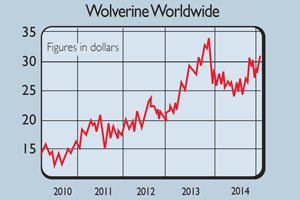
A long-term dog and ex-foreign-institutional darling is Li & Fung (HK: 494), a major trading and manufacturing group that was publishing over-flattering accounts when cash flow was in fact deteriorating. But with the share price half that of five years ago and its debt-fuelled acquisition spree over, it would benefit from any devaluation.
With management in a different class altogether is the best of the footwear companies, Wolverine Worldwide (US: WWW). It has a wide range of global brands with significant China-based production. It should gain from devaluation both as an exporter and in the domestic market.
Jonathan Compton spent 30 years in senior positions in fund managementand stockbroking.
Get the latest financial news, insights and expert analysis from our award-winning MoneyWeek team, to help you understand what really matters when it comes to your finances.
Jonathan Compton was MD at Bedlam Asset Management and has spent 30 years in fund management, stockbroking and corporate finance.
-
 How a ‘great view’ from your home can boost its value by 35%
How a ‘great view’ from your home can boost its value by 35%A house that comes with a picturesque backdrop could add tens of thousands of pounds to its asking price – but how does each region compare?
-
 What is a care fees annuity and how much does it cost?
What is a care fees annuity and how much does it cost?How we will be cared for in our later years – and how much we are willing to pay for it – are conversations best had as early as possible. One option to cover the cost is a care fees annuity. We look at the pros and cons.
-
 Governments will sink in a world drowning in debt
Governments will sink in a world drowning in debtCover Story Rising interest rates and soaring inflation will leave many governments with unsustainable debts. Get set for a wave of sovereign defaults, says Jonathan Compton.
-
 Why Australia’s luck is set to run out
Why Australia’s luck is set to run outCover Story A low-quality election campaign in Australia has produced a government with no clear strategy. That’s bad news in an increasingly difficult geopolitical environment, says Philip Pilkington
-
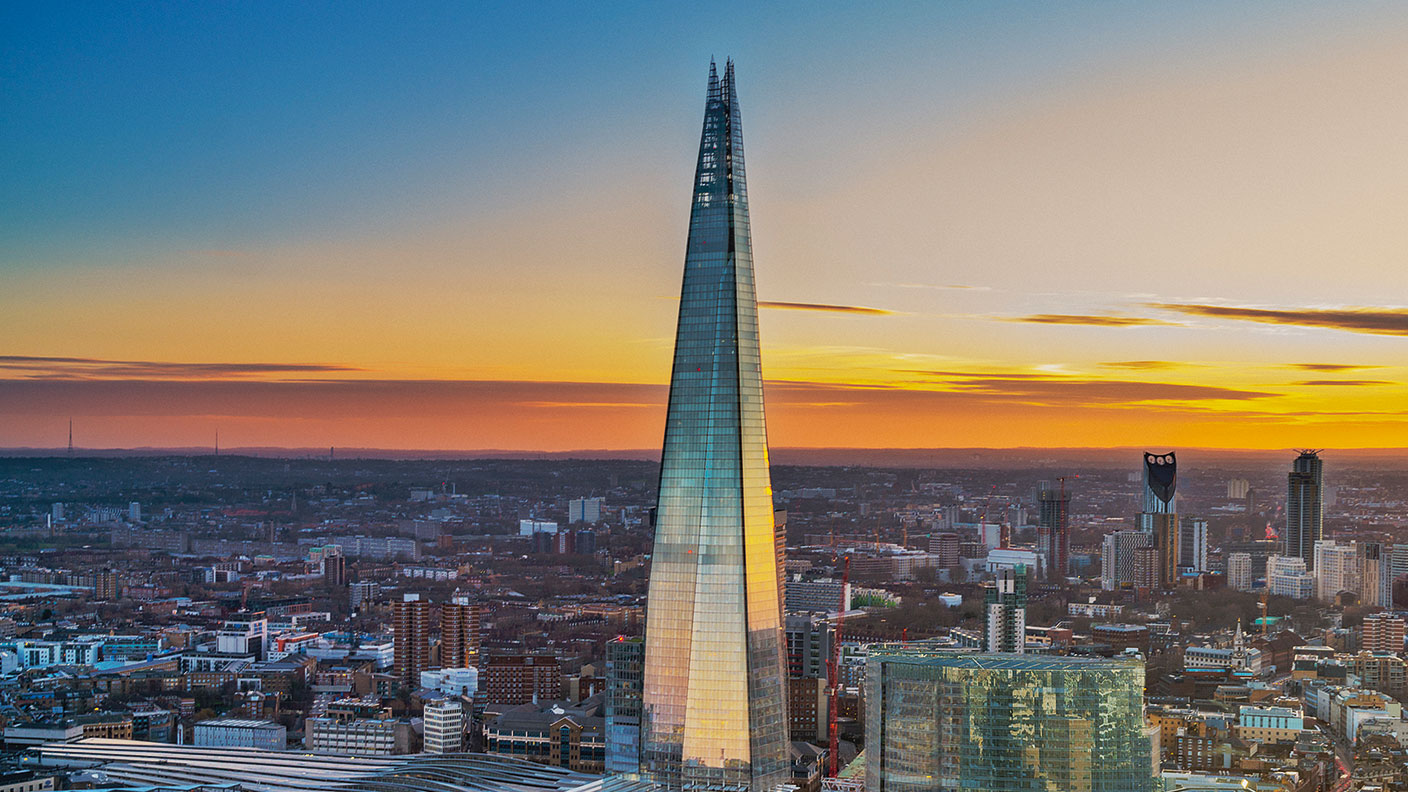 Why new technology is the future of the construction industry
Why new technology is the future of the construction industryCover Story The construction industry faces many challenges. New technologies from augmented reality and digitisation to exoskeletons and robotics can help solve them. Matthew Partridge reports.
-
 UBI which was once unthinkable is being rolled out around the world. What's going on?
UBI which was once unthinkable is being rolled out around the world. What's going on?Cover Story Universal basic income, the idea that everyone should be paid a liveable income by the state, no strings attached, was once for the birds. Now it seems it’s on the brink of being rolled out, says Stuart Watkins.
-
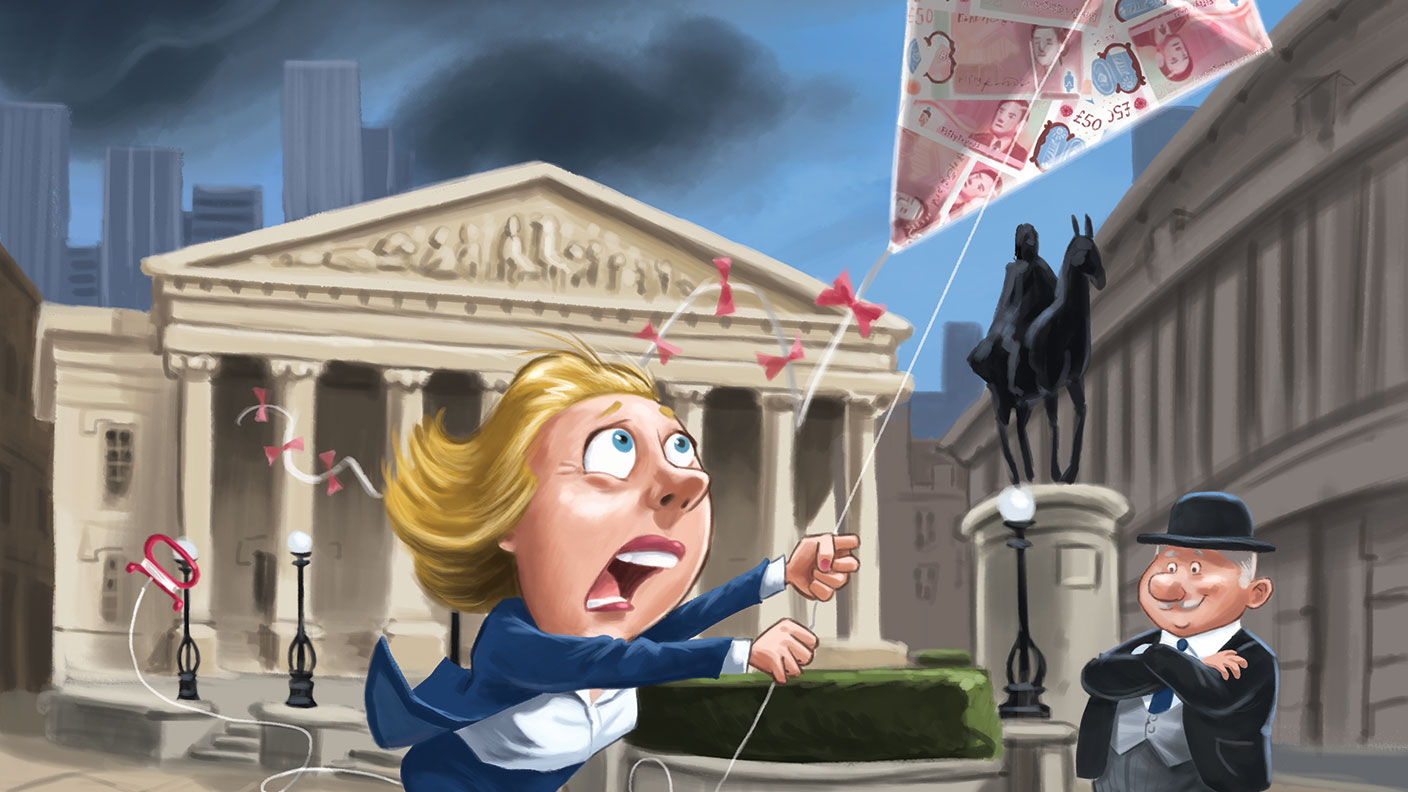 Inflation is here to stay: it’s time to protect your portfolio
Inflation is here to stay: it’s time to protect your portfolioCover Story Unlike in 2008, widespread money printing and government spending are pushing up prices. Central banks can’t raise interest rates because the world can’t afford it, says John Stepek. Here’s what happens next
-
 Will Biden’s stimulus package fuel global inflation – and how can you protect your wealth?
Will Biden’s stimulus package fuel global inflation – and how can you protect your wealth?Cover Story Joe Biden’s latest stimulus package threatens to fuel inflation around the globe. What should investors do?
-
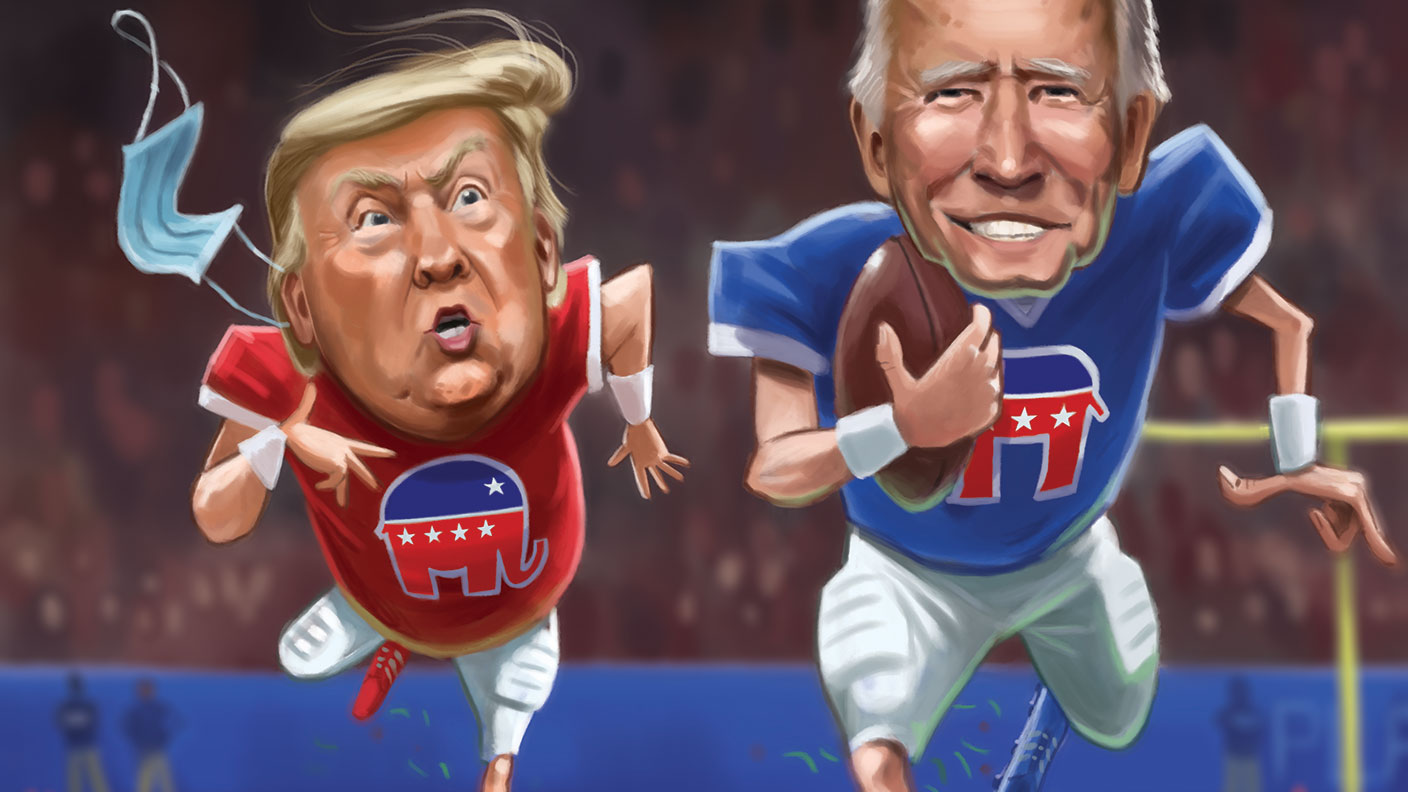 What the race for the White House means for your money
What the race for the White House means for your moneyCover Story American voters are about to decide whether Donald Trump or Joe Biden will take the oath of office on 20 January. Matthew Partridge explains how various election scenarios could affect your portfolio.
-
 What’s worse: monopoly power or government intervention?
What’s worse: monopoly power or government intervention?Cover Story Politicians of all stripes increasingly agree with Karl Marx on one point – that monopolies are an inevitable consequence of free-market capitalism, and must be broken up. Are they right? Stuart Watkins isn’t so sure.